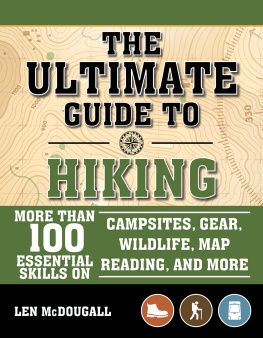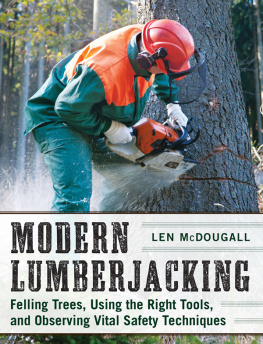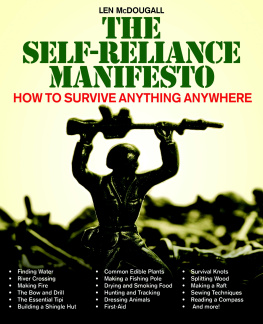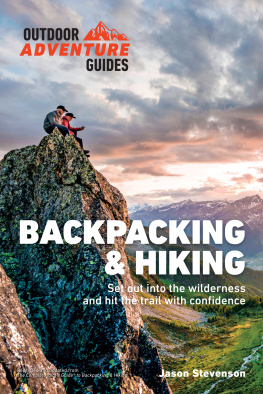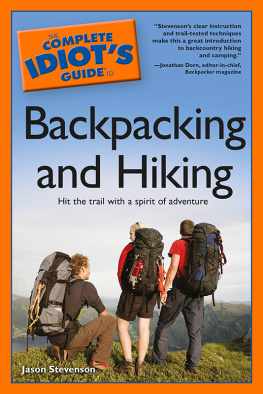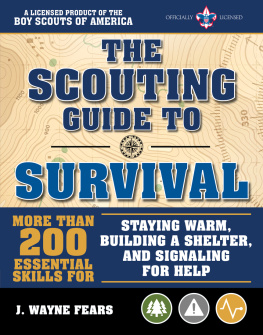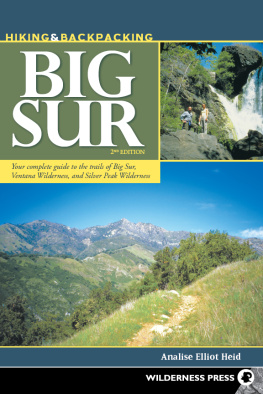


Copyright 2021 by Len McDougall
All rights reserved. No part of this book may be reproduced in any manner without the express written consent of the publisher, except in the case of brief excerpts in critical reviews or articles. All inquiries should be addressed to Skyhorse Publishing, 307 West 36th Street, 11th Floor,New York, NY 10018.
Skyhorse Publishing books may be purchased in bulk at special discounts for sales promotion, corporate gifts, fund-raising, or educational purposes. Special editions can also be created to specifications. For details, contact the Special Sales Department, Skyhorse Publishing, 307 West 36th Street, 11th Floor, New York, NY 10018 or .
Skyhorse and Skyhorse Publishing are registered trademarks of Skyhorse Publishing, Inc., a Delaware corporation.
Visit our website at www.skyhorsepublishing.com.
10 9 8 7 6 5 4 3 2 1
Library of Congress Cataloging-in-Publication Data is available on file.
Cover design by Brian Peterson
Cover photo credit: iStock
Print ISBN: 978-1-5107-4276-5
Ebook ISBN: 978-1-5107-4280-2
Printed in China


TABLE OF CONTENTS
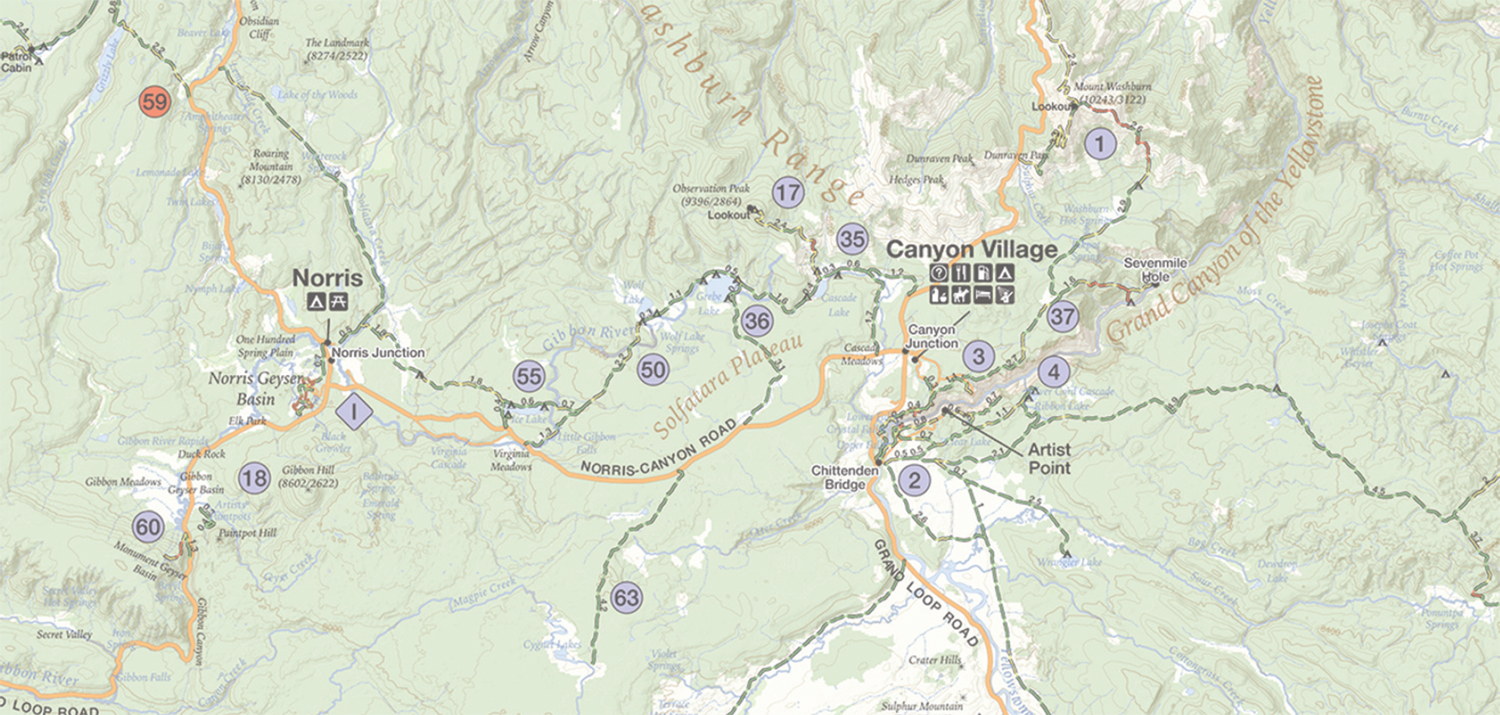
INTRODUCTION:
WHY WE HIKE
Why do we hike? What is it that possesses us to venture on foot into wild places that by their very nature lack the conveniences, services, and luxuries that twenty-first-century people have come to take for granted? Why would anyone enter into an environment that may be so removed from civilization that cellular telephones cant get a signal? Such places can, and sometimes have, claimed the lives of unprepared. Some locations are so remote that outside help, at your best speed, might be more than half a day away.
The answer to the question of why we voluntarily brave such hardships and potential danger is, in a single word, adventure. Most of us have the desire to explore that drove early Americans to carve homes from wilderness, to clear and plant the land for farms that would sustain future generations of pioneers. From the base provided by these first homesteaders there sprang a small army of rovers and voyagers who fulfilled President Thomas Jeffersons vision of linking the United States of America from sea to shining sea.

We have a long tradition of venturing far and wide into places where the faint of heart will not be found.
As a hiker, youre following in the footsteps of heroes like Captain Meriwether Lewis and Second Lieutenant William Clark, whose expedition across unknown territory, using only the most basic of navigational tools, proved that the West Coast of the United States bordered the Pacific Ocean. Because of those first footsteps of Lewis and Clark, and those who created the Oregon Trail after them, you can tread the same paths with almost none of the rigors and dangers that they faced.

With the finest wilderness trekking gear ever invented, and a little guidance from those who went before them, the hikers of today are fully capable of visiting (and helping to protect) our worlds vanishing wilderness places.
Perhaps most importantly, because of those early explorers, you can have a detailed map. Modern maps present an aerial picture of the mountains, rivers, and other terrain features that came as a surprise to early explorers. You can know what youre getting into before you get into it.
Even so, dont for an instant think that trekking into a wilderness area is not an adventure. Ask the oldest, most learned outdoors person, and theyll tell you that virtually every outing reveals something theyd never seen before. The study of nature, a prime motivation for hikers in any environment, can blossom into a lifelong educational endeavor. If you spent every day out of doors with a tablet computer, or even just pencil and notebook, you couldnt see or record every nuance that normally occurs in the natural world in a very long lifetime.
And that is why we hike: to see sights, to smell fragrances, to experience feelings not available anywhere except in forests, deserts, and mountains that are far from the bustle of human civilizations. We hike because we are afflicted with the same desire to see what lies over the next rise, a desire that spurred the earliest American frontiersmen and their families to carve a primordial continent into the greatest nation in the history of the world.
But remember, a smart hiker never hikes alone. Always take a buddy along. Its more fun that way, and its a whole lot safer for both of you.

The children of our pioneer forebears were taught to safely handle every aspect of their lives, from fire to firearms, and todays hikers can experience at least a taste of that frontier life.
See you on the trail.

HIKING GEAR ESSENTIALS:
OUTFITTING FOR THE TRAIL
THE WELL-DRESSED HIKER
Popular culture has promoted a naked-into-the-wilderness myth in recent years, but the truth is that Native Americans, Aborigines, and frontiersmen did not venture into wilderness without having as much equipment for safety and comfort as they could carry. Early people lived in wilderness, and they were only too aware, personally and vicariously, of how a single misstep could cost even the most skilled their lives. There was no 9-1-1, no telephones, sometimes no nearby neighbors, and often no one to rely on except themselves.
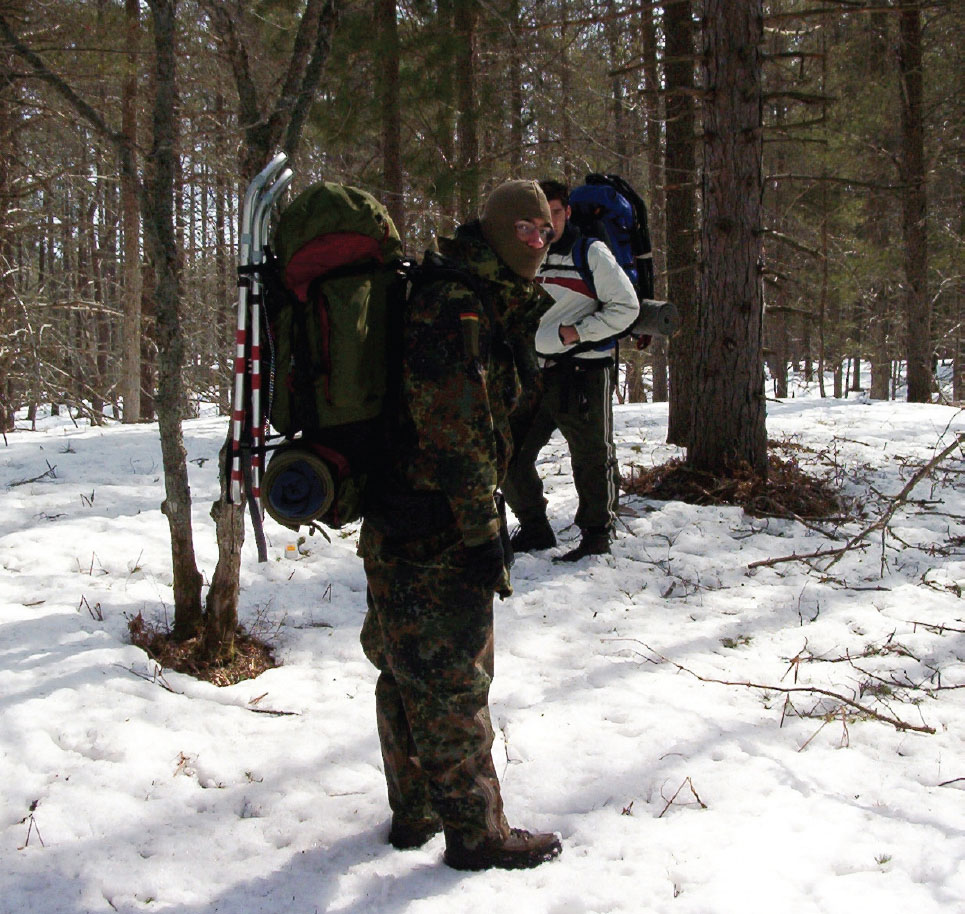
Indigenous people or pioneers on any continent didnt trek into wilderness without taking as many potentially life-saving tools as were possible to carry, not the least of which was protective clothing.
Perhaps ironically, the most capable, yet least experienced, wilderness trekkers are living today, in an age of plastics, microconductor electronics, and ultralight materials. Todays hikers have access to tools that our forefathers and foremothers could only have dreamed of if they possessed vivid imaginations. Ponder for a moment how valuable the ordinary resealable plastic containers that we throw away by the millions every single day (and which often end up in the oceans and forests) would have been to people for whom sealed containers were limited to cork-sealed glass, horn, and sewn rawhide. It has been said that if a person were thrown back in time three hundred years and could only take one thing, a good choice would be a filled dump-ster, whose contents would make them wildly wealthy.
Next page
